September 2019 Parent Newsletter
Dear Westmont Parent,
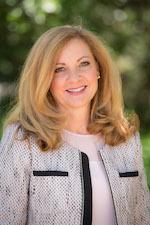
We’re excited to begin another semester and academic year. Countless new experiences and opportunities await your student: meeting new friends, engaging in meaningful conversations, getting to know professors, being stretched, growing academically, and worshiping together in chapel. They may sign up for a Capax Dei small group and take time to focus on God and grow in a trusted space with people who care about them. Some of your students will experience an adventure abroad or an internship downtown. Athletes will bond with their teammates and learn to deal with challenging situations successfully. Westmont students grow in so many areas of their lives.
The Office of Alumni and Parent Relations exists to facilitate engagement between you and the college as well as with your student. We seek to strengthen your bonds with this special community.
Our office and your Parents Council pray for incoming students by name and hope that all students will thrive throughout both challenging and joyful circumstances.
Have you joined our Westmont College Parents group on Facebook? If not, we encourage you to seek out this unique opportunity to share information, ask questions, connect with and encourage fellow Westmont parents.
Our email newsletter strives to provide practical information about building up and blessing your student, updates about college activities, and insights into the student experience. Please feel free to suggest any topics that interest you. We highly value you as a member of the broader Westmont community and seek your input.
First-year parents, plan to attend First-year Parents Weekend, November 1-3. Watch for upcoming details about this fun, low-key time when you can glimpse your student’s life at Westmont.
We always welcome your emails (parents@westmont.edu) or phone calls (805-565- 6056). Please feel free to contact us. We’d love to visit with you.
Sincerely yours,
![]()
Lorinda Dry
Assistant Director of Alumni and Parent Programs
New Year, New Students: Get the Facts about the Class of 2023
We’re excited to welcome 451 new students, including 406 first-year students in the class of 2023. Seven percent come from Santa Barbara County. Thirty-seven students have spent two or more years abroad, and 22 are international, missionary or third-culture students from El Salvador, Spain, Swaziland, the United Kingdom, Japan, Rwanda and France. The new students represent 10 countries and 30 U.S. states. Thirty-nine percent are students of color, with 18% identifying themselves as multiracial with two or more races. Forty percent are men and 60% are women. Students have expressed the most interest in majoring in economics and business (13%), biology (12%), kinesiology (12%), psychology (11%), and communication studies (7%). Eleven percent has yet to specify a possible major.
Young adults born in 2001 belong to Generation Z, which appears to be a more cautious group than millennials: less inclined toward risky choices and more influenced by practical realities. “One generational expert, Neil Howe, even suggests that they be called the ‘Homeland Generation’ and defined by a post-9/11 birthdate beginning in 2004,” says Ryan Scott in a Forbes article. “The wary worldview of this group is further shaped by Generation X parents, who came of age in the post-Watergate and Vietnam years amidst a time of economic and global uncertainty and who are now obsessed with creating a safer world for their kids. . . . They gobble up information quickly and are ready to move on to the next thing in an eye blink. When it comes to Gen Z, seconds count. Generation Z embraces multiculturalism as a touchstone of who they are, and this also informs their attitudes on social issues.”
According to a recent study, nearly 25 percent of 13- to 17-year-olds left Facebook this year, showing a trend toward more instantaneous apps that include less personal information. They have never experienced renting a movie that was not rewound, checking the yellow pages, or taking a picture and waiting to see what it looks like.
It’s OK to Fail
By Edee Schulze

Who hasn’t failed? When your students fail at something, they might feel they’re the only one who fails—or the only one who fails BIG TIME! Or they might feel that because they failed once they’ll always fail or never make progress. Newsflash! They’re not alone! We all fail. It’s normal. It’s part of being human. It’s definitely part of learning. Benjamin Barber, an eminent sociologist, once said, “I don’t divide the world into the weak and the strong, or the successes and the failures… I divide the world into the learners and non-learners.” Are your students learners or a non-learners when they fail?
World-renowned Stanford University psychologist Carol S. Dweck talks about learning in our failures. She writes about a simple but groundbreaking idea: the power of mindset. In her brilliant book, Mindset: The New Psychology of Success, she shows that how we think about our talents and abilities dramatically influences our success in school, work, sports, the arts and almost every area of human endeavor. People with a fixed mindset—those who believe that abilities are fixed—are less likely to flourish than those with a growth mindset—those who believe that abilities can be developed. The good news is that we can change our mindset, which can change how we respond to failure.
Dr. Dweck outlines four steps to changing our mindset from “fixed” to “growth” specifically regarding failure. The information below comes from the author’s website about the book so you can help support your students.
Step 1. Help your students learn to hear the voice of their fixed mindset.
As they approach a challenge, that voice might say, “What if you fail—you’ll be a failure.”
As they hit a setback, the voice might say, “It’s not too late to back out, make excuses and try to regain your dignity.”
As they face criticism, they might hear themselves say, “It’s not my fault. It was something or someone else’s fault.”
Step 2. Help your students recognize that they have a choice.
Your students choose how they interpret challenges, setbacks and criticism. They can interpret them in a fixed mindset as signs that they lack the right talents or abilities. Or they can interpret them in a growth mindset as indications that they need to ramp up their strategies and effort, stretch themselves and expand their abilities. It’s up to them.
As they face challenges, setbacks and criticism, they can learn to resist the voice of their fixed mindset.
Step 3. Encourage your students to talk back to their fixed-mindset voice with a growth-mindset voice.
As your student approaches a challenge:
THE FIXED MINDSET says “Are you sure you can do it? Maybe you don’t have the talent.”
THE GROWTH MINDSET answers, “I’m not sure I can do it now, but I think I can learn to with time and effort.”
FIXED MINDSET: “What if you fail—you’ll be a failure”
GROWTH MINDSET: “Most successful people had failures along the way.”
As your students hit a setback:
FIXED MINDSET: “This would have been a snap if you really had talent.”
GROWTH MINDSET: “That is so wrong. Basketball wasn’t easy for Michael Jordan, and science wasn’t easy for Thomas Edison. They had a passion and put in tons of effort.”
As your students face criticism:
FIXED MINDSET: “It’s not my fault. It was something or someone else’s fault.”
GROWTH MINDSET: “If I don’t take responsibility, I can’t fix it. Let me listen—however painful it is– and learn whatever I can.”
Step 4. Help your students take the growth-mindset action.
Over time, your students choose which voice they heed and whether they
- take on the challenge wholeheartedly,
- learn from their setbacks and try again, and
- hear the criticism and act on it.
Your students came to college to learn. So encourage them to dive into it! It’s OK to fail! They won’t be alone in their failure, and they won’t learn if they don’t try. We’re here to support your students. My colleagues in the Student Life Office and I pray for your students as they succeed and as they fail in their experience here at Westmont. We seek to pursue growth with your students—even when they fail.
Learn Your Student’s Class Verse
Class of 2020: “Many are the plans in a person’s heart, but it is the Lord’s purpose that prevails.” Proverbs 19:21
Class of 2021: “I know the Lord is always with me. I will not be shaken, for He is right beside me.” Psalm 16:8
Class of 2022: "Guide me in your truth and teach me, for you are God my Savior, and my hope is in you all day long." Psalm 25:5
Class of 2023: “Let your roots grow down into Him . . .Then your faith will grow strong in the truth you were taught.” Colossians 2:7
Meet the New Resident Director in Clark
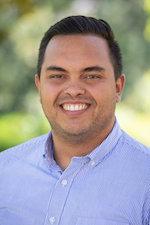
We’re excited to welcome Ryan Anderson, the new resident director of Clark Halls, who worked most recently as a graduate resident adviser at Wheaton College. He is passionate about students, has expertise in mentorship and discipleship, and loves educating students on spiritual formation and physical and emotional health. He earned a Master of Arts in Christian formation and ministry with a concentration in student development from Wheaton. He completed a creative project, Enneagram and Ministry: A Curriculum for Mentoring College Students.
Ryan graduated from Westmont in 2016 with a Bachelor of Arts in economics and business and with a minor in religious studies. He served as a resident assistant both in Page Hall and Emerson and is known for his Spring Sing shenanigans. His amazing laugh is contagious and promotes joy!
Revisit Orientation
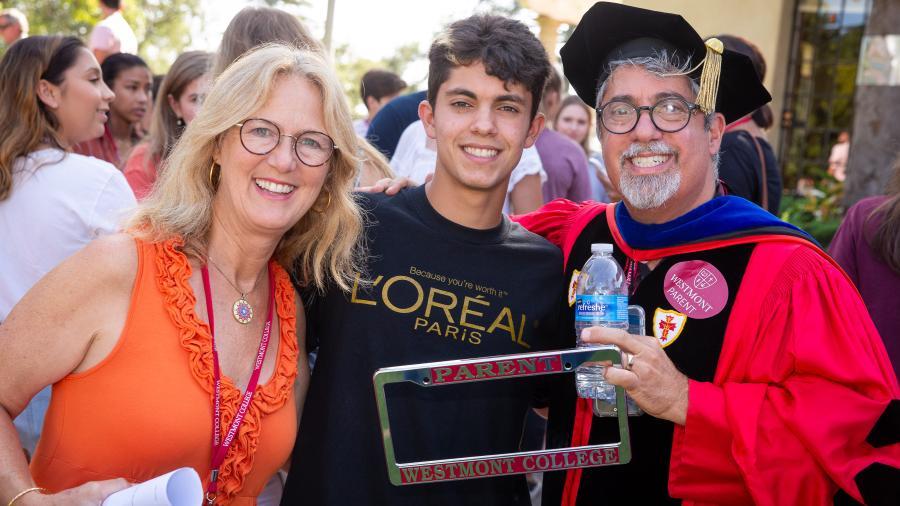
We think all our parents will enjoy this brief video of Orientation as it captures many great moments shared by our new parents and students.
Distinguished Professors Join Westmont
In this issue, we highlight four of the eight new professors who join the Westmont faculty this fall. All four teach in the sciences.
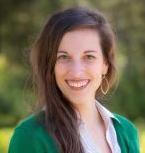
Anna Aboud, assistant professor of mathematics, is finishing her doctorate at Iowa State University. She earned a master’s in teaching at the University of Alaska at Anchorage and graduated from Wheaton College.
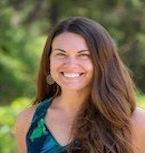
Stephanie Cowell, a 2004 Westmont graduate, returns to assume the role of lab coordinator and stockroom manager for the Chemistry Department. She earned a Master of Science in science education at CSU Long Beach and a Master of Science in chemistry at UC Irvine.
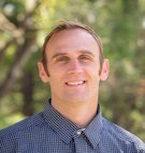
Adam Goodworth joins the Kinesiology Department as a biomechanist with experience with mechanical engineering. He finished his doctorate in biomedical engineering at the Oregon Health & Science University and earned his undergraduate and master’s degrees at the Colorado School of Mines.
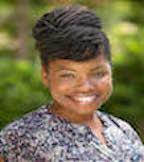
Ogechi Nwaokelemeh steps into a full-time, tenure-track role in the Kinesiology Department after teaching there for several years in short-term appointments, including a course in two Global Health semesters in Uganda. She earned a Bachelor of Science in kinesiology at the University of Texas at Austin, a Master of Science in exercise physiology at Howard University, and a doctorate in kinesiology at the University of Massachusetts-Amherst.
Read more about our distinguished new professors!
Extra, Extra, Read All About It
A subscription to Westmont’s weekly student newspaper, the Horizon, will give you a taste of college events and issues being discussed on campus as well as stories about athletics, residence hall life, faculty activities, perspectives on faith-related issues and other topics of interest. Annual subscriptions cost $65 or $40 a semester. For more information, to order or to contact Editor-in-Chief Will Walker ’20, call 805-565-6242 or email horizon@westmont.edu. Learn more about the team on their webpage.
Please “request to join” our Westmont College Parents Facebook group to connect with other Westmont parents.